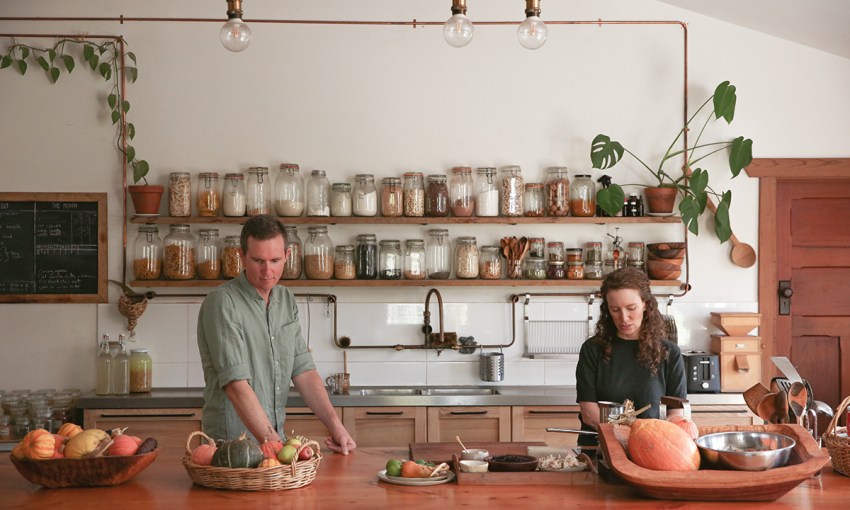For many years, Dani Austin and Sam Ryan dreamt of a simpler life where they could work fewer hours and spend more time growing their own food, living sustainably and connecting with like-minded people. This is how they did it.
The simple life
Imagine if you got together with your neighbours and decided to use your gardens to produce all the fruit and vegetables you could ever need. You make your own bread, beer and wine, trade preserves and produce with neighbours and there’s a communal orchard growing bucket-loads of fruit.
Your house is a strawbale cottage, made with sustainable and recycled materials and insulated so that it needs little heating or cooling. You rarely need to go to the supermarket. Plus, you work part-time, so you have extra time to invest in projects that feed your soul.
This was a lifestyle that Dani Austin and Sam Ryan dreamt of for many years.
“Fifteen years ago, we were fresh out of uni, working and watching too much Grand Designs and learning about this whole world of sustainable living,” says Dani. “We did dream of building the strawbale house and growing some veggies – not living a perfectly self-sufficient life or anything – but we did have that vision. Every so often, I have to stop and recognise that we are now living that dream.”
Sam, originally from Adelaide, and Dani, from a regional area outside of London, met while both studying environmental degrees in Toronto, Canada, and connected over similar life values.
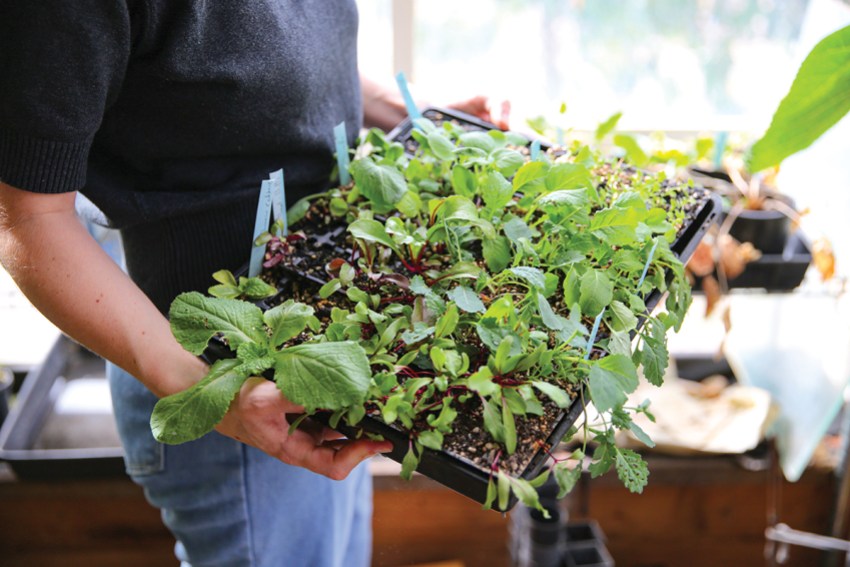
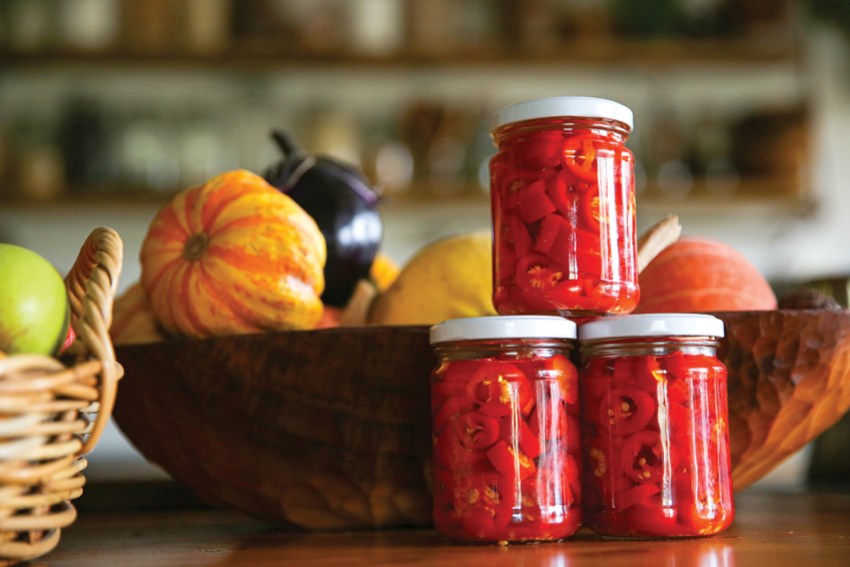
“Neither of us grew up in this sort of lifestyle; we had conventional upbringings,” says Dani. “We both had a shared thread of having watched lots of David Attenborough nature programs.”
The pair lived in the UK for a couple of years, which was when they became exposed to the world of “simple living”. They travelled the country chasing all sorts of courses from cheese- and soap-making, to building strawbale homes, gardening and fermenting, meeting many like-minded people along the way.
When they moved to Adelaide, it didn’t seem like there was the same sustainable movement they had known in England and were disheartened. But as it turned out, they just hadn’t met the right people … yet.
They learnt about the Aldinga Arts Eco Village, a community which was started about 20 years ago on a degraded 32-acre paddock. Not able to afford a home in Sam’s childhood suburb of Seacliff, they decided that if they could work part-time, then commuting to work from Aldinga wouldn’t be so bad.
Sam became involved volunteering to help build a tiny home within the village. “We’ve had quite a beautiful journey of meeting all these amazing people,” says Sam.
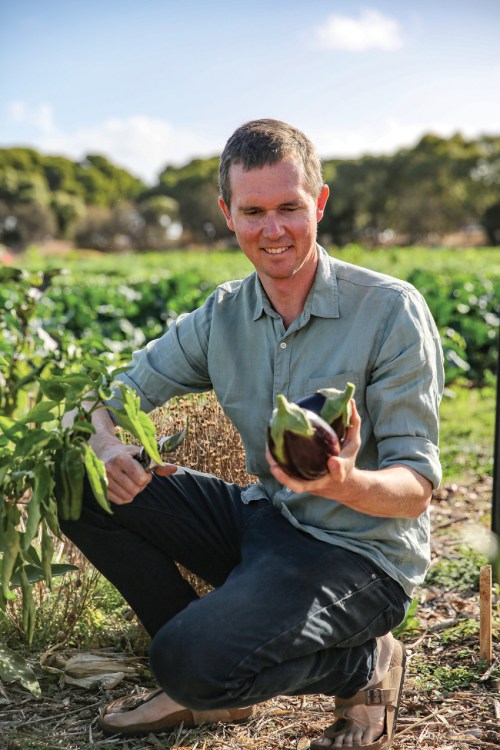
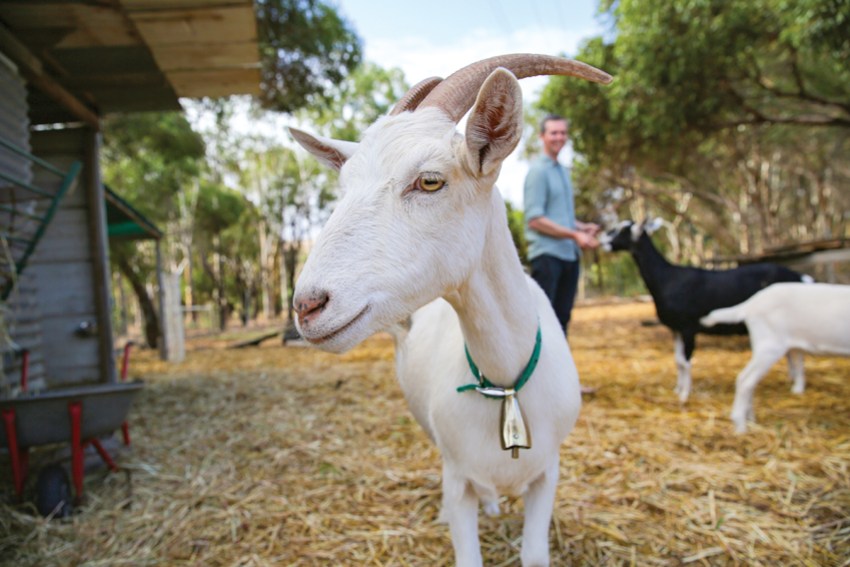
In 2015, Dani and Sam purchased a 450 square metre block of land within the Eco Village and are now among the 400 residents who live there. It contains communal fruit trees, a large community garden and even a goat co-operative, which the couple helped to start.
The couple helped design their own strawbale house and Sam worked alongside the tradies to build it. They enlisted neighbours and friends to help raise the walls with bales of straw and were able to keep within their construction budget of $220,000.
“We joke that we built a house so that we could garden and that’s only partly a joke,” says Sam. “It influences how we spend our time from the very moment we go outside, first thing in the morning. We eat quite seasonally – every now and again we’ve got to eat eggplant for two weeks because they’re going ballistic – but it’s rare that we go to the supermarket. It gives you a lot more control over the food you eat.”
Dani says it was only after meeting a similar community of people in England that they realised this type of lifestyle was even possible. “I can’t understate how valuable it has been to find out, relatively early in our lives, that part-time work was even an option. It had never crossed my mind that I wouldn’t work Monday to Friday, nine-to-five,” says Dani.
Both Dani and Sam work four days a week: Dani is Tatachilla Lutheran College’s environmental education coordinator and Sam works for the City of Marion, with groups of conservation volunteers. Sam is also involved in another project, helping to run a regenerative farm at Kuitpo.
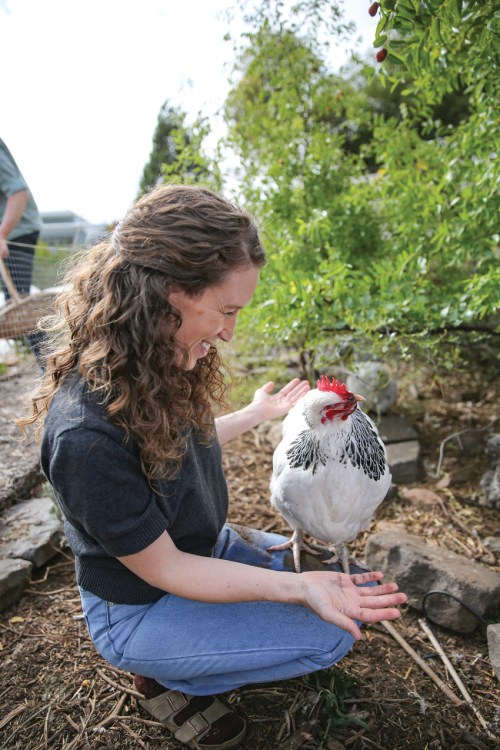
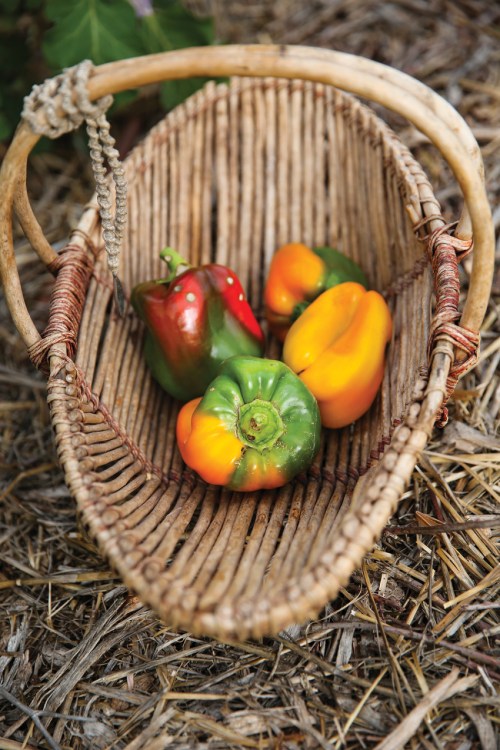
There are many terms to describe their sustainable lifestyle, but they prefer “simple living”. It reflects that although they have a focus on eco-living and sustainability, it’s more about the experience itself.
“It’s a really joyful way of living,” says Dani. “That is my favourite thing about it. People can relate to this way of life, perhaps through things their grandparents used to do, and many people seem to yearn for it – a simpler life in so many ways.
“I also have to make the point that it’s voluntary simplicity, which is very different to forced simplicity and having to live this way, because we understand that we’re in a real position of privilege to be able to do this.”
Drawing on 15 years of acquiring and honing numerous skills, the couple now run workshops under the banner of Folk of all Trades. They teach everything from organic gardening, composting, fermenting, baking bread, making beeswax wraps and even how to carve your own wooden spoons.
“It’s grown into a whole host of topics. Our name is Folk of all Trades because we’re masters of none – we don’t pretend we’re experts in any of those things,” says Dani.
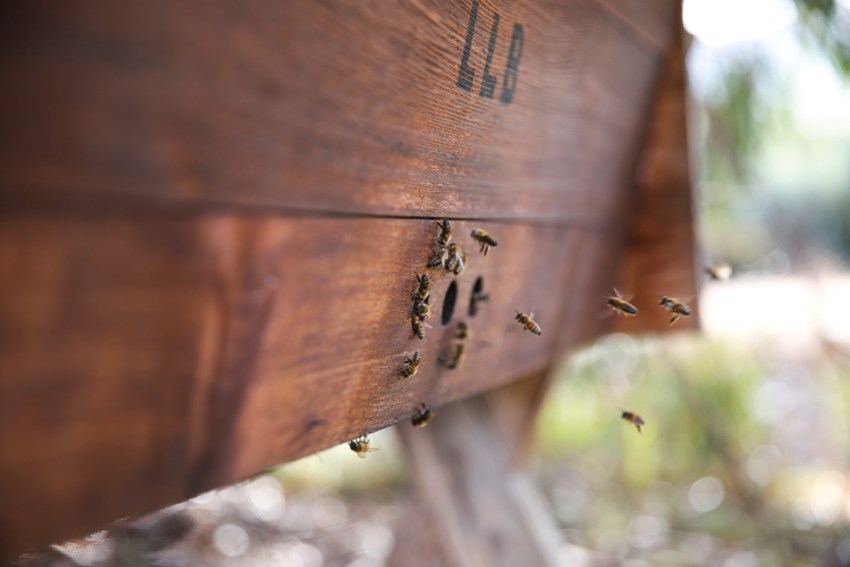
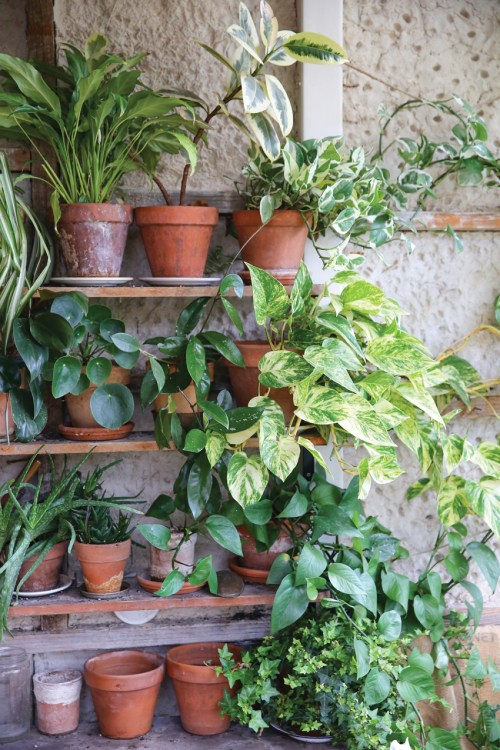
Sam says the aim of the workshops is to share skills that have made an immense impact on their own lives. “We get a lot of joy out of sharing that with other people and starting them on their journey,” says Sam.
“I can distinctly remember all the times I’ve done a workshop that has really impacted my life. It’s a nice thing to now be sharing that gift of hands-on, simple living – that gives us so much satisfaction.”
While Dani and Sam have the unique situation of living within a community village, they say that anyone can get started on their own journey of simple living, no matter where they live.
“People say that all this gardening must take ages, but actually it’s the processing and the harvesting that takes the longest,” says Sam.
Their space for growing veggies is surprisingly small at around 120 square metres and Dani says you can grow a large amount in a humble suburban garden. They suggest starting small, perhaps growing herbs and quicker-to-grow crops, but focusing on things you enjoy eating. Mistakes happen and you learn along the way, so you don’t want to go too big too early.
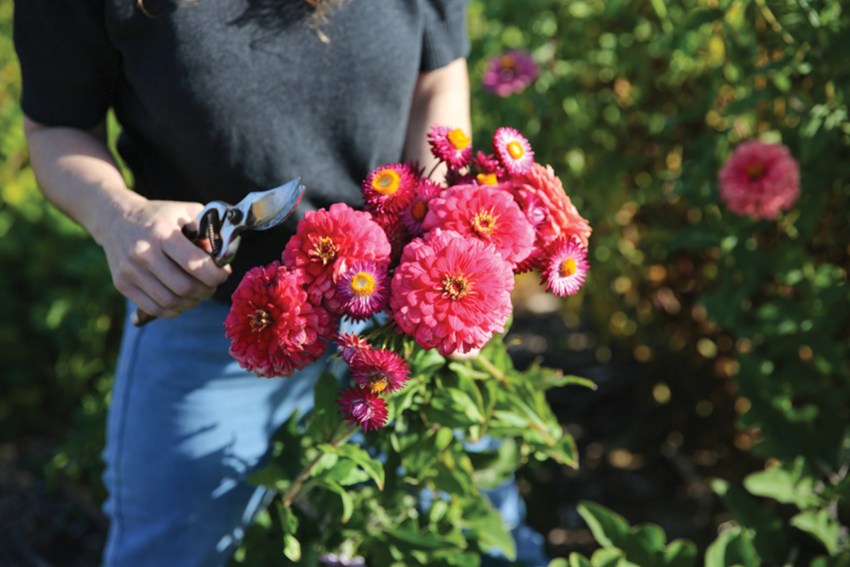
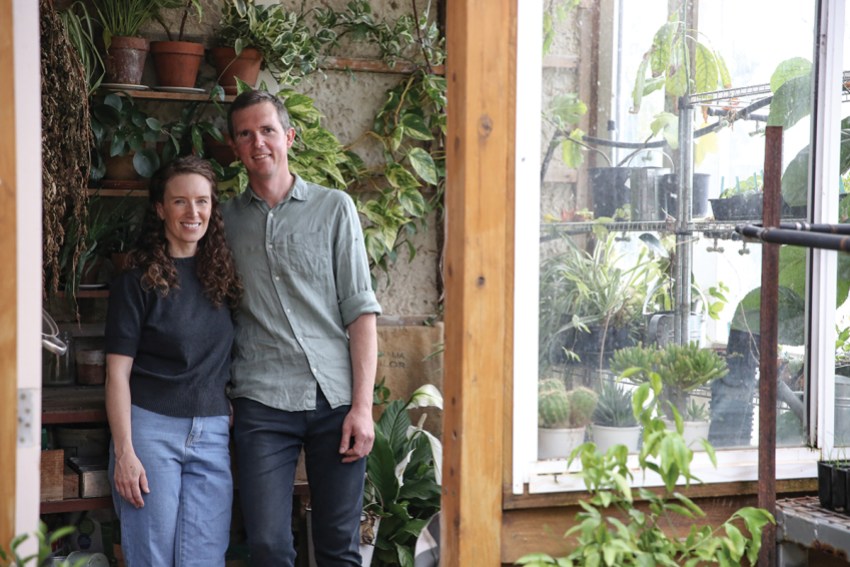
“We started small with one little garden bed. We chucked some plants in and our spacing between seedlings was terrible, we probably got the fertiliser and water all wrong, but we learnt from that feedback and kept trying,” says Dani.
It doesn’t get much simpler than that.
This article first appeared in the May 2023 issue of SALIFE magazine.



